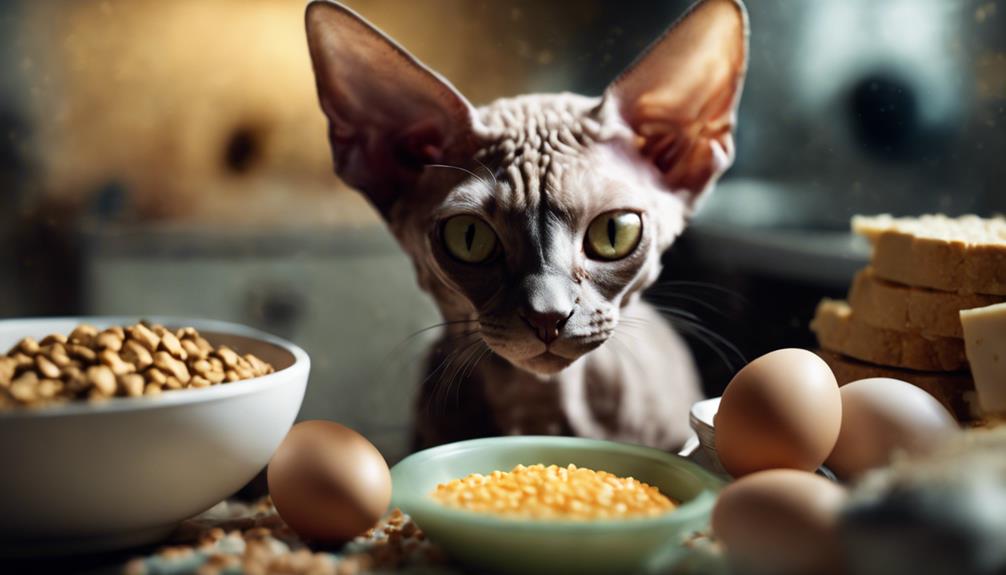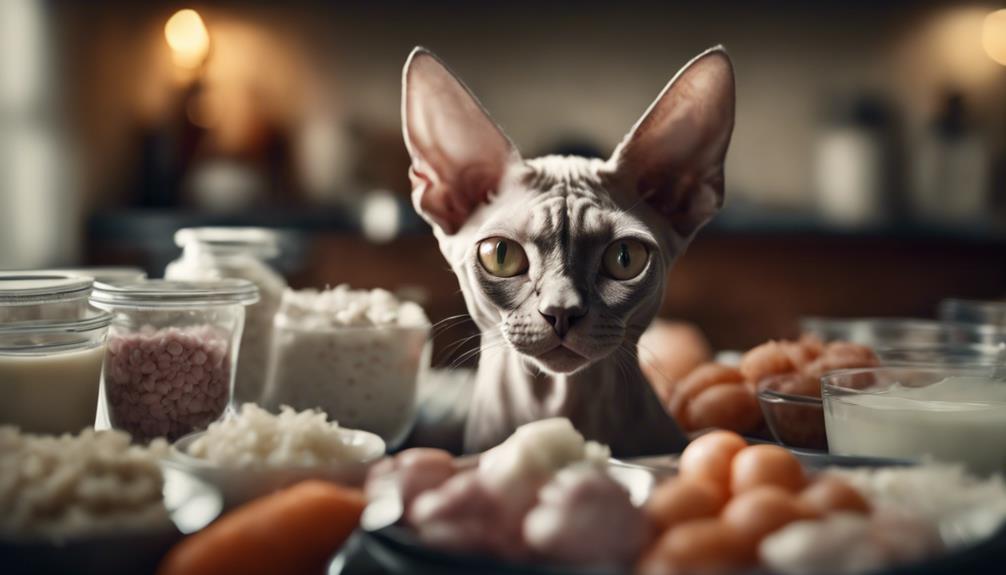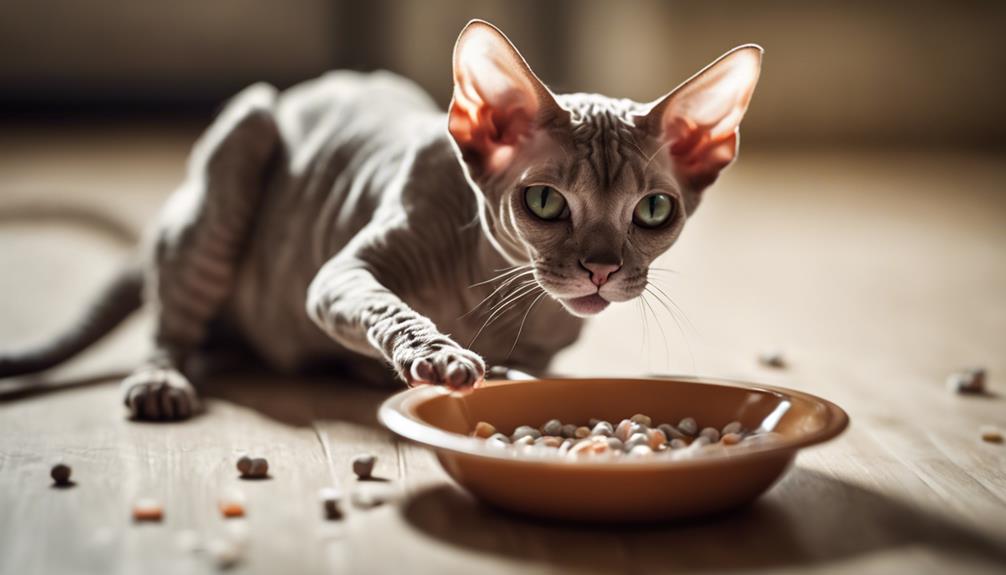If you’re considering adding a Devon Rex to your life, you likely have tons of questions – Is this breed the right fit for me? Do they require special care and grooming needs?
Most importantly, do they shed a lot?! With their playful personalities and soft curls of fur, it can be easy to fall head over heels in love with these cats. But no one wants to end up living in an unrelentingly furry home!
We’ve got all the answers you need right here so that you can make an informed decision about whether the Devon Rex is for you.
How much do Devon Rex cats shed?
Devon Rex cats are a low maintenance breed that require minimal grooming. One of the biggest benefits of owning a Devon Rex is their low shedding rate.
These cats have short coats that tend to lay close to their body and may not even appear to possess any fur at all! This makes them ideal companions for anyone sensitive to pet hair since they basically produce no dander or hair around the home.
Though minimal grooming will not completely eliminate shedding, it can help manage the amount that does occur as well as keep their coat healthy and matt-free.
How often do Devon Rex cats molt?
Devon Rex cats are known for their whiskers, large ears, and distinctive curly fur. This curly coat is the result of a gene mutation that causes the cats to have less fur than most breeds.
Luckily, these low-maintenance felines don’t need to be groomed frequently and they typically only molt once or twice a year. In comparison, many other breeds of cats can experience major shedding up to three or four times annually.
As they are such easy cats to maintain, many pet lovers turn to this unique housecat when looking for a low-maintenance companion in their home.
Which breed of cats shed the least?
For those looking for a low-shedding cat, there are many breeds to choose from. The Bengal is a great option, as they typically have very short coats.
Siamese cats also tend to shed minimally due to their fine, silky fur. Those with allergies should consider the Devon Rex breed; their unique curls trap dander and pet hair, reducing the amount of shedding in the home. An Oriental Shorthair is another good choice, as these cats have very dense fur that catches and retains fewer fur particles than other breeds. Lastly, Sphynx cats don’t have any hair at all! While they may still produce mild allergens, they will not shed any fur around the house.
No matter which low-shedding breed you choose, you can rest assured that your new feline friend will be less likely to cause an allergic reaction amongst your family and guests.

Are Devon Rex high maintenance?
Devon Rex cats have a unique appearance with their curly fur and large ears, but do they require high levels of maintenance or can any cat-lover care for them appropriately?
Some people may be opposed to owning a Devon Rex since these cats tend to require more grooming and attention than other breeds. As active cats, they enjoy spending time exercising both indoors and outdoors and need adequate stimulation to lead healthy lives. In terms of grooming, they are heavier shedders in the summertime and therefore weekly brushing should be factored into the routine.
Overall, while requiring additional care, it is possible to keep a Devon Rex with minimal hassle by providing the right environment – plenty of playtime, interaction with humans, and brushing are key!
Do Devon Rex kittens lose their fur?
Devon Rex kittens are a unique breed of cats characterized by their curious, intelligent personalities and ruffled coats.
But as they age, many owners wonder if these unique Rex cats will lose the fur that characterizes them. The answer is yes – Devon Rex kittens do eventually shed their coat, but for good reason! As the kittens grow older and reach adulthood around one year old, the soft kitten fur gives way to a healthier, mature coat that’s more durable than before.
As such, owners may still experience some shedding throughout the cat’s life but nothing like the immense shedding seen when first born. It’s all just part of the natural process for growing up!
What problems do Devon Rex have?
Devon Rex cats are a popular pet breed known for their intelligence, mischievousness, and friendly personalities.
However, like all other cat breeds, they can experience health issues that their owners should be aware of. Devon Rex cats have an increased predisposition for periodontal disease due to unusually small teeth as well as genetic heart defects. They also have an associated higher risk of cardiomyopathy, an inflammation of the heart muscle that decreases its ability to pump blood around the body.
It is important to provide regular dental care from an early age and take your cat regularly for veterinary examinations in order to prevent or diagnose these ailments in your pet.
Will leaving a Devon Rex alone affect its shedding habits?
Final Words
By now, you should have a better understanding of whether Devon Rex cats shed a lot or not. As discussed, due to their much shorter coats than other breeds, the amount of shedding can be minimal for many owners.
However, it’s important to remember that all cats groom themselves and so some level of shedding is always expected with any breed. To keep shedding in check, it’s highly recommended that regular grooming be done such as brushing your cat weekly and/or bathing them when necessary.
Ultimately, you get to decide what’s best for your own pet as you know them best. With the right care and attention your Devon Rex won’t cause any excessive levels of shedding around the house!




